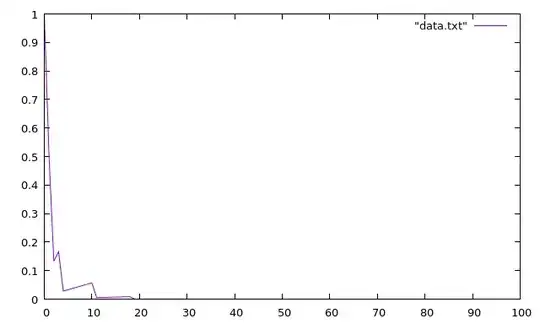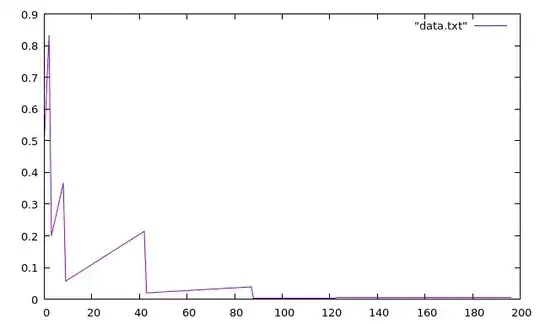Consider the product of all primes less than $3 \log_2{n}$. Is it true that this product is always at least $n$ for all positive integers $n$?
In general, what is the smallest $x_n$ so that the product of all primes less than $x_n$ is always at least $n$? Here $x_n$ is a function of $n$.
I plotted $\frac{n}{\text{product of all primes less than $3 \log_2{n}$}}$ to support the conjecture. Here it is for for $n$ from $2$ to $100$.
I computed the values for $n$ up to one million and the ratio gets smaller and smaller, supporting the conjecture.
I then repeated the same experiment but with $\frac{n}{\text{product of all primes less than $2 \log_2{n}$}}$. Here it is for for $n$ from $3$ to $200$.
So it seems that the product of all primes less than $2 \log_2{n}$ might also work.
I also tried it with $\frac{n}{\text{product of all primes less than $ \log_2{n}$}}$. The conjecture no longer holds for small $n$ and it seems it might not even hold if you restrict it to large $n$.

